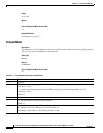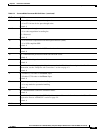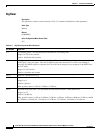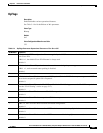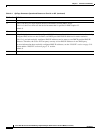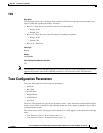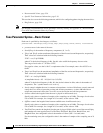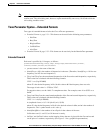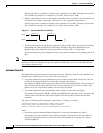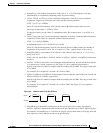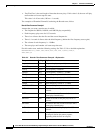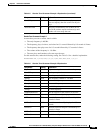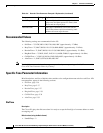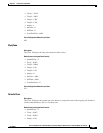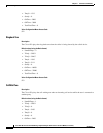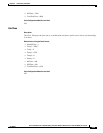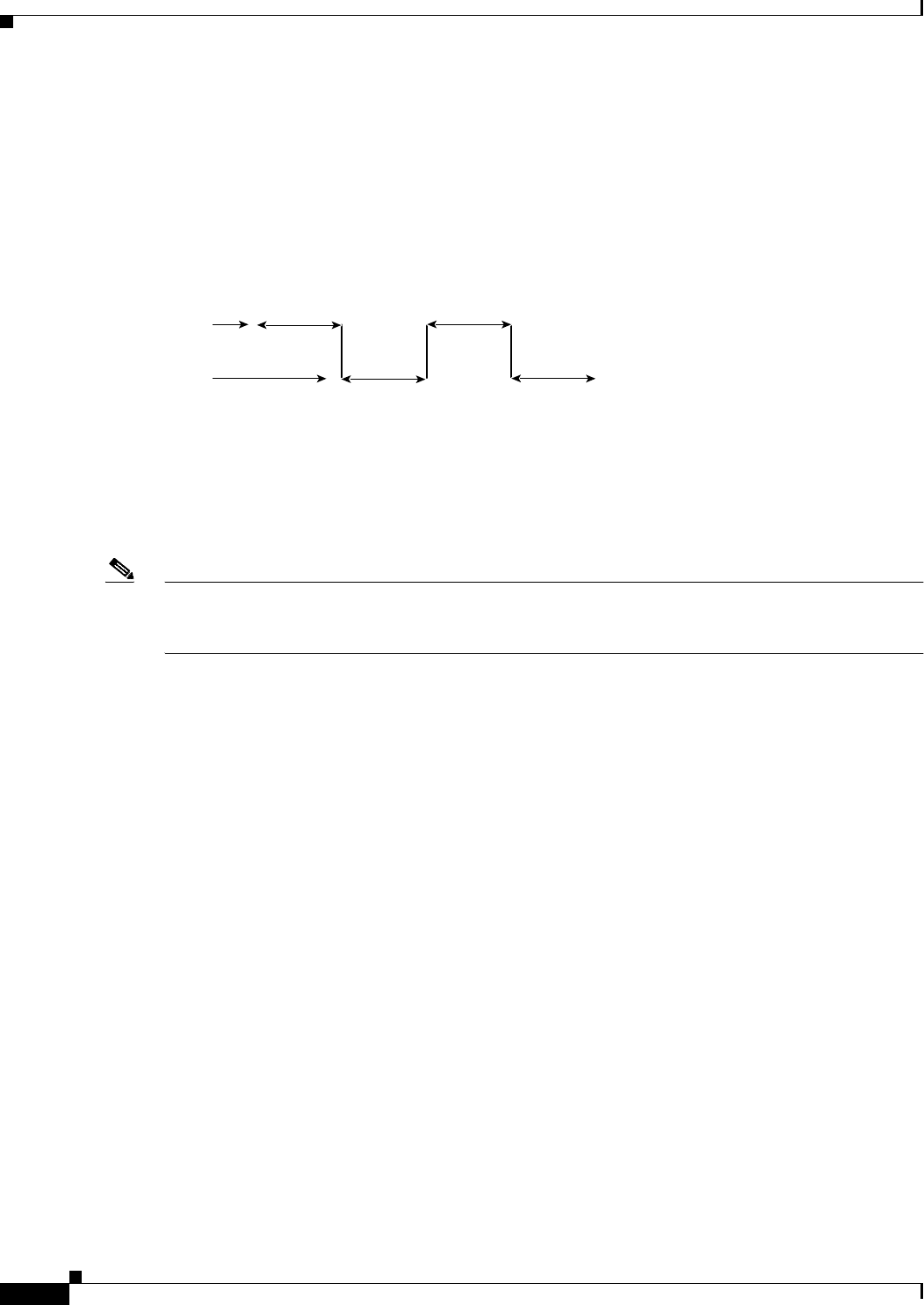
5-32
Cisco ATA 186 and Cisco ATA 188 Analog Telephone Adaptor Administrator’s Guide for MGCP (version 3.0)
OL-4803-01
Chapter 5 Parameters and Defaults
Tone Configuration Parameters
Specify each value as a number of samples with a sampling rate of 8 kHz. The range of each value
is 0 to 0xffff. For example, for a length of 0.3 seconds, set the value to 2400.
• OffTime1 and OffTime2 values are the lengths of time that silence is played for the first and second
on-off pairs of a cadence, respectively. (See Figure 5-1 for a graphical representation.)
Specify each value as a number of samples with a sampling rate of 8 kHz. The range of each value
is 0 to 0xffff. For example, for a length of 0.3 seconds, set the value to 2400.
Figure 5-1 Cadence With Two On-Off Pairs
•
TotalToneTime controls the length of time the tone is played. If this value is set to 0, the tone will play
until another call event stops the tone. For DialTone, DialTone2, BusyTone, ReorderTone, and
RingBackTone, the configurable value is the number of 10 ms (100 = 1 second) units.
For the remaining tones, the configurable value is the number of samples with a sampling rate of 8
kHz.
Note All tones are persistent (until the Cisco ATA changes state) except for the call-waiting tone and the
confirm tone. The call-waiting tone, however, repeats automatically once every 10 seconds while the
call-waiting condition exists.
Extended Format B
The ReorderTone parameter specifies the tone that the Cisco ATA plays when the called number is not
available or the external circuit is busy. This tones can consist of:
• Up to three frequencies played simultaneously and a cadence of up to three on-off pairs. The first
on-off pair can repeat multiple times before the second on-off pair plays.
For example, a 400 Hz frequency plays four times for 0.75 second followed by 0.1 second of silence
after each play and then plays one time for 0.75 second followed by 0.4 second of silence. This
pattern can be set to repeat until another call event stops the pattern.
• Up to three frequencies played sequentially with a cadence of up to three on-off pairs
For example, the frequencies 900 Hz, 1400 Hz, and 1800 Hz play sequentially for 0.33 seconds each
with no silence after the first and second frequencies but one second of silence after the third
frequency.
The syntax of the ReorderTone parameter is specified by 17 integers, as follows:
ReorderTone:Sequential,NumOfFreqs,TFreq1,Tamp1,TFreq2,
Tamp2,TFreq3,Tamp3,NumOfOnOffPairs,OnTime1,OffTime1,
OnTime2,OffTime2,OnTime3,OffTime3,NumOfRepeats,TotalToneTime
where:
• Sequential specifies whether multiple frequencies in a tone play simultaneously (100) or
sequentially (101). Set to 100 for a tone with one frequency. If Sequential is 101, the number of
frequencies (NumOfFreqs) has to be the same value as the number of on-off pairs in a cadence
(NumOfOnOffPairs).
OnTime_1
OffTime_1
OnTime_2
OffTime_2
Sound
Silence
99267



